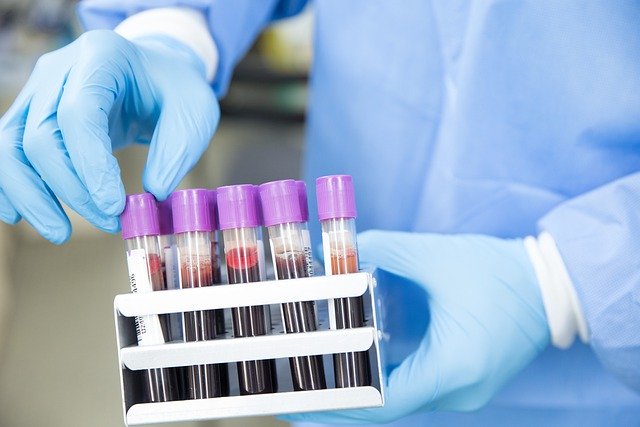13 Aug. 2021. A company developing non-invasive liquid biopsy tests for cancer received NIH funding to extend that technology for quick Covid-19 virus tests. BioFluidica in San Diego, a spin-off enterprise from University of Kansas, is receiving an award from the National Institutes of Health’s Rapid Acceleration of Diagnostics, or RADx, program to create a rapid at-home test for the SARS-CoV-2 virus.
BioFluidica develops diagnostics for cancer, testing blood samples for circulating tumor cells, individual cells that break off from original tumors or those formed from where cancer spreads, and flow through the blood stream. These cells make up a minute proportion of blood volume, but are implicated in the spread of cancer to other parts of the body. Because of their tiny amounts, circulating tumor cells are difficult to find, but when detected can offer an early warning about the spread of cancer in a patient.
The company’s technology, called LiquidScan, uses a microfluidic or lab-on-a-chip device made of channels lined with antibodies that isolate circulating tumor cells in the blood. The device then collects and counts the tumor cells with an electronic sensor, keeping the cells intact for further analysis. LiquidScan, says BioFluidica, can also be used to detect cell-free DNA, including DNA from pathogens, and exosomes, tiny lipid-membrane containers in cells that gather up and secrete cytoplasm, the gel-like material outside the cell nucleus. In addition, the company says LiquidScan can process saliva as well as blood samples.
Isolate, detect, and analyze SARS-CoV-2
BioFluidica is receiving $250,000 from the RADx program, established by NIH as a crowd-sourced challenge to find the best candidates for point-of-care and at-home Covid-19 diagnostics that can translate into large numbers of inexpensive and easy-to-use tests, in a relatively short period of time. The company says its LiquidScan microfluidic technology can isolate, detect, and analyze SARS-CoV-2 viruses in saliva samples, returning results in 15 minutes. And the company says test kits with this device can be made at low cost for widespread distribution.
BioFluidica was co-founded by University of Kansas engineering and chemistry professor Steven Soper, based on his research with detecting and diagnosing circulating biomarkers. “A self-administered rapid test produces confidential results at home and in minutes,” says Soper, also the company’s chief technology officer, in a statement released through Cision, “while laboratory tests take longer and at increased cost. The hope is that easier access to tests and faster, accurate test results will make frequent testing more desirable and encourage people to protect themselves and others in the community.”
The RADx funds for BioFluidica are routed through the Midwest Biomedical Accelerator Consortium, a group of universities in five Midwest states offering funds and training for faculty and students to translate their health discoveries into products. The Consortium receives about $1 million from NIH to support its work.
More from Science & Enterprise:
- Portable Testing Device IDs Covid-19 Variants
- Covid-19 Delta Variant Testing Reference Released
- Pooled Saliva Tests Detect Covid-19 in Schools
- Face Mask Sensor Detects Covid-19 Virus
- Medical Centers Join Covid-19 Digital Biomarker Trial
* * *


 RSS - Posts
RSS - Posts
[…] Liquid Biopsy Tech Adapted for Covid-19 Testing […]